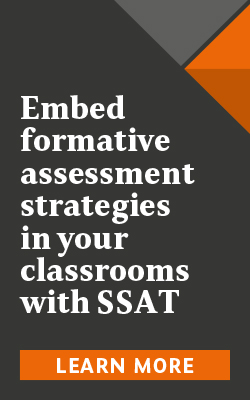
Corinne Settle, Senior Education Lead at SSAT, outlines how we can increase the effectiveness of professional teachers if we plan for, and support, behaviour change
Much of what teachers do is habit based, after years of practice it can be almost subconscious, just like when we drive a car, deep in thought and then realise we don’t recall the journey.
Researcher Phillipa Lally et al. (2009) wanted to better understand how long it took for a group of 96 people to form a new habit in their life. Although the habits investigated were relatively simple, eg a daily run or eating a piece of fruit, they found that, on average it took 66 days to form a new habit. The range of results was from 18 to 254 days. This research was based upon continual daily practice.
When do we allow teachers time and space to do this amongst everything else they need to do?
In these challenging times, when teachers are rapidly and continually adapting to change, we need to consider carefully how we support teachers to develop their practice. Is this even the right time? There are immediate needs that need to be met first from grappling with new technologies and the emotional impact of the pandemic.
We do need to keep looking forward
Chip and Dan Heaths’ book Switch: How to change things when change is hard (2010) has really struck a chord with me. The authors explain that we have two parts:
- The Elephant – our emotional side
- The Rider – our rational side
Most of us think that the Rider always controls the Elephant, but in most cases it’s the other way around. The Elephant ends up controlling the Rider and when the Elephant makes a decision, the Rider has little choice.
Considering this concept in relation to professional development, if we wish to support teachers in breaking and forming new and even better classroom habits, we should consider the following:
- Giving teachers knowledge won’t lead to a behaviour change alone. It will direct the Rider, but we need to motivate the elephant.
- Find the bright spots, in our now, can these be replicated?
- Accept that small steps lead to big changes, but these take time.
- Teaching is frequently overwhelming, and this can prevent change – ask is now the right time?
- Failure will happen en route to habit change. The Elephants hates this and will want to give up; expect it will happen and plan support.
- What may look like laziness is often exhaustion.
- What looks like resistance is often a lack of clarity. “If the Rider isn’t sure exactly what direction to go, he tends to lead himself in circles.”
Professor Dylan Wiliam has concluded that there are five key elements in the process of professional development: choice, flexibility, small steps, accountability and support. These are enacted through SSAT’s Embedding Formative Assessment programme, designed to embed formative assessment in your classrooms and across your entire school by changing habits and behaviours.
Join SSAT and Dylan Wiliam at the forthcoming Leadership of Teacher Learning webinar
15.45, Wednesday 2 December
We know that one method of achieving a more engaged classroom is for teachers to change their teaching habits. But with time being an issue, how can teachers develop and improve their practice?
Join SSAT and Dylan Wiliam at this free, interactive webinar which will explore:
- changing classroom practice to increase learning
- group leadership’s role in ensuring productive collaboration
- strategies to integrate formative assessment into teacher evaluation.
References:
Heath, C. & Heath, D. (2010). Switch: How to change things when things are hard. Random House Business Books.
Lally, P. et al (2009). How are habits formed: Modelling habit formation in the real world. European Journal of Social Psychology. https://doi.org/10.1002/ejsp.674


